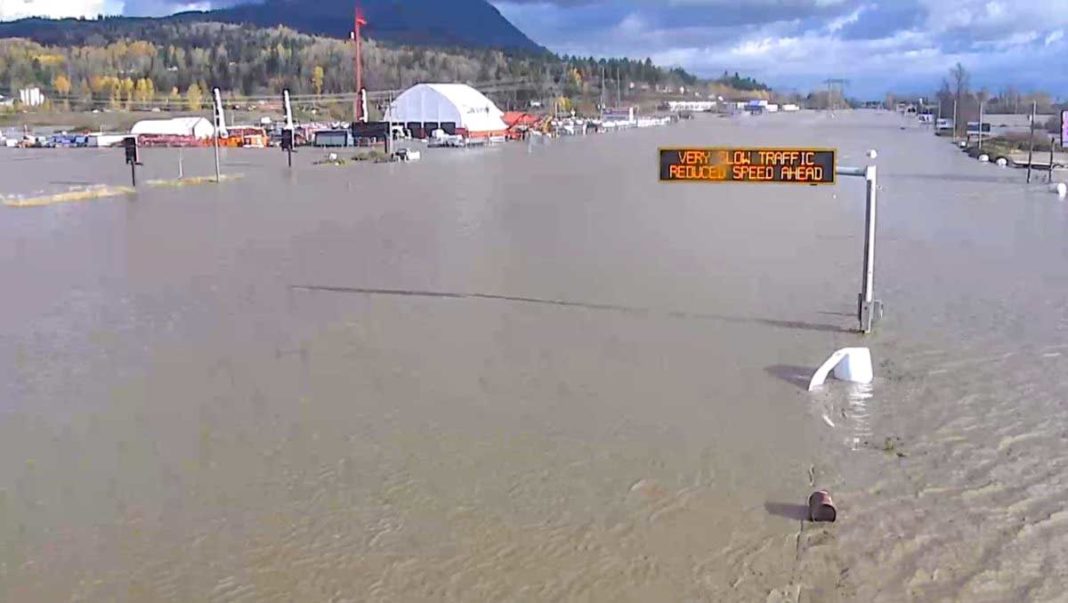MISSISSAUGA – The scenes captured in videos and photographs of the catastrophic damage from flooding and mudslides in southern British Columbia are as severe as they look, says the president of Manitoulin Transport, who is in daily contact with people who are living in BC.
“It is. I’ve run out of adjectives to describe what I’ve heard and seen from people who are there,” stated Jeff King, when contacted by The Expositor last Friday. “It has been an incredible disaster.”
“Things are changing by the hour,” Mr. King told The Expositor in an update on Sunday. “There is now an access on the main road in and out of the affected region, so we are moving freight in and out (of the affected region) and Vancouver.”
However, “even though we are now able to move freight on the access road, it is very slow and congested as you can imagine,” said Mr. King. “I want to give recognition to our drivers who are having to deal with very difficult conditions and the process of moving things is much slower than normal. And for example, they have to constantly make sure they have enough fuel and supplies to move freight. We really want to express our appreciation for our drivers who are working very hard to move our shipments for that region during this time.”
Mr. King noted that Manitoulin Transport doesn’t have terminals in Merritt or any of the severely affected areas. “I don’t know anyone who has first-hand been affected by the flooding and mudslides in BC.”
In a release on November 17, Manitoulin Transport had explained in part, “flooding and mudslides continue to impact travel in BC and many highways and major routes are currently closed. As a result, all freight carriers are experiencing significant service challenges in this region. There are shipments in our network that are delayed and will be delivered once the highways are opened.”
Major areas affected by the closures included Metro Vancouver and the Fraser Valley, Merritt, Delta, Port Valley, Port Coquitlam, Richmond, Surrey, Langley, Abbotsford, Chilliwack and Vancouver Island. Manitoulin Transport’s BC terminals in Sparwood, Cranbrook, Dawson Creek, Fort St. John, and Fort Nelson terminals were not affected by the highway closures.
The BC government announced last week that getting road and rail back up and in operation is a top priority as it declared a provincial state of emergency. The decision was made to mitigate impacts on transportation networks and movement of essential goods and supplies, and to support the province-wide response and recovery from the widespread damage caused by severe flooding and landslides. The state of emergency is essentially in effect for 14 days and may be extended or rescinded as necessary.
“Our focus is on clearing, repairing and reopening roads to connect the Interior and the north to the Lower Mainland and Vancouver Island, to get our supply chains moving,” said Rob Fleming, minister of Transportation and Infrastructure, in a statement. “We are working closely with multiple partners to make this happen. It is a big job, but collectively we are up to the challenge and will get things opened up again just as soon as we possibly can.” Repairs were to continue through the weekend.
At least one person was killed in a mudslide triggered by the heavy rainfall.





